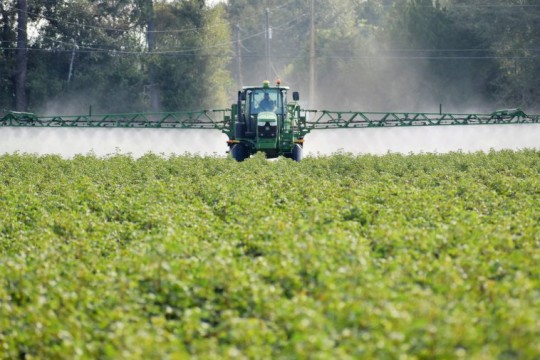Escambia and Santa Rosa Private Applicator Training Coming To Jay
January 9, 2022
Santa Rosa Extension is welcoming anyone interested in obtaining a Private or Ag Row Crop license to attend a pesticide safety training.
The training will be Friday, January 21 at 9 a.m. at the Linda Carden (Jay) Community Center at 5259 Booker Lane in Jay. Training should be completed by mid-afternoon, which will allow time for exam completion.
Attendees will learn the basics of applying pesticides correctly and will be able to take the exams (private applicator and core) necessary to become certified private applicators by FDACS.
Anyone using or supervising the use of restricted use pesticides on agricultural or related sites in Florida needs a restricted use pesticide license. Agricultural and related sites include, but are not limited to the following areas: farms, plant nurseries, livestock operations, forests, ornamental and turf not associated with structures. A “private applicator” is an individual who has reached the age of maturity (generally 18 years old) and is licensed by FDACS to use or supervise the use of any restricted use pesticide for purposes of producing any agricultural commodity on property owned or rented by the licensed person or that person’s employer. This license is for farm, ranch, grove, nursery, sod farm applications, etc.
CEUS offered at this training include 2 Core, 2 Aerial, 2 Ag Row Crop, and 2 Private Applicator. The core points will be available in the morning part of the class while the category training will take place after lunch.
The cost per person is $15, which includes lunch. Advanced registration is required to ensure adequate preparations are made for lunch, materials and exams. To register please contact: Bethany Caraway at (850) 857-2313 or by email at bethanydiamond@ufl.edu.
Comments
2 Responses to “Escambia and Santa Rosa Private Applicator Training Coming To Jay”




Clearly you have no clue about agriculture
I think the safest way to apply pesticides to the food that you or someone else will eat is to not apply it at all. The environment would be fine, it would just disrupt the money made by the farmer to supply food to Americans the way Americans have become accustomed to getting their food.